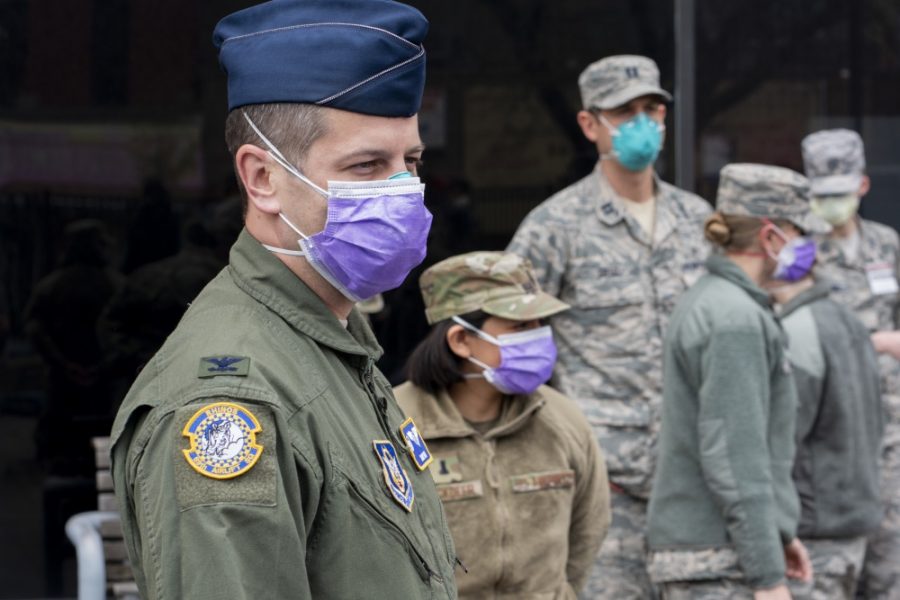USAF medical personnel are working long days in New York City hospitals, augmenting civilian staff who are overwhelmed by the new coronavirus outbreak in the American epicenter of COVID-19.
As the scale of the outbreak grew, medical personnel from the Air Force and other services volunteered to fly to New York City to serve. Reservists activated within hours to leave civilian lives and come to hospitals in need of assistance. Col. Jennifer Ratcliff, the commander of the 927th Aerospace Medical Squadron at MacDill Air Force Base, Fla., is one of those volunteers and is now working as a doctor in NYC hospitals.
“Within 36 hours, we were in New York City,” Ratcliff told reporters in a teleconference. “That says a lot for the Air Force personnel that are willing to come here and take care of fellow American citizens.”
The military response in the city includes the USNS Comfort naval hospital and the large-scale field hospital established at the Javits Center, along with dozens of personnel working inside the hospitals that are extremely busy on the frontline in treating the virus.
“We’re very busy, the city still needs our assets,” she said.
Once USAF personnel arrived in the area, they first reported to the Javits Center. The city then sent them to hospitals based on their needs and the alignment with the military member’s skills.
“What I find interesting is that once that we were credentialed within these hospitals, how quickly we’ve been able to actually integrate and how welcoming the city has been with our care,” Ratcliff said “We’re a fresh face, we’ve got the energy and the enthusiasm to really help these people that are tired and have been working very, very long days and weeks.”
Because of the nature of the virus and how contagious it is, medical personnel are forced to take extensive precautions to avoid further spread. Military members in the city have tested positive for the virus, but the Pentagon has not released specific data.
“We’re treating everyone as if they’re COVID positive,” Ratcliff said. “It’s safer to assume that, and take those preventive measures. … It’s everywhere in the city.”
The most visible military health presences in the city have been the Comfort and the Javits Center field hospital, though both have so far had more empty beds than in-use beds. Army Lt. Col. Leslie Curtis, the chief nurse officer with the 9th Field Hospital at the Javits Center, said her facility has seen a fluctuation of patients, with about 120-150 new cases per day and a discharge of about 40-50 patients per day. The personnel have been “extremely busy” working 12 or more hours every day, following strict protocols for force protection because the “patients are all positive.”
There were initial frustrations from city officials that more patients were not being sent to the military facilities, though there has been movement to streamline the bureaucracy since then. “We are moving in the right directions, finding more ways to do it better,” she said.
Defense Secretary Mark Esper said the movement of staff into local hospitals is part of a three-pronged approach, along with the additional capacity in military-run facilities and helping to expand civilian facilities. The addition of military personnel into civilian hospitals is a “pivot” from the original plan.
The military is looking to deploy additional field hospitals and personnel to other locations, including task forces in Boston, a facility in Miami, and moving the field hospital from Seattle to Chicago. The Federal Emergency Management Agency makes the final decision on these moves, and the goal is to have facilities established by the time outbreaks are widely spread.
